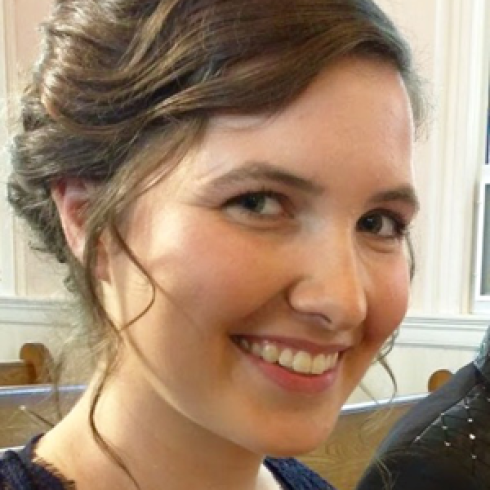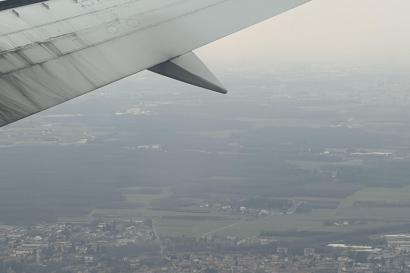My departure from Italy was obvious the second that I stepped into the Munich airport—the air was still and devoid of the steady whir of espresso machines. I fought the urge to cut in line even though a few months in Milan had taught me to smile and slide into whatever entry point I could find in the bulbous vaguely line-shaped clumps that are preferred in Italy to the linear and subdued German queues. On the plane, I helped an Italian couple translate their customs form, clinging onto the last few moments of being surrounded by the Italian language.
I was only gone from the states for a few months, so of course upon my return much of the fixtures in my life are the same as they were before. I still have to tip in restaurants because American customs haven’t caught up with the sensible European method of paying wait staff a living wage, and I’m back to making coffee at home instead of walking to a bar and ordering a caffé macchiato. I can no longer grab the number 16 tram to take me for a quick jaunt to the Duomo and the Galleria but I do see self-driving cars circling the streets of Palo Alto. Rather than falling asleep to the rumbling of the number 10 tram passing under my window, my lullaby is yet again the pitter-patter of squirrels running across our roof.
What I miss the most is undoubtedly the language. I won’t pretend to have a complete mastery of the Italian language (though one day I hope to) but I got by in my classes and daily life in Milan (me la cavata, in italiano) and felt gloriously independent as a navigated phone calls, exams, and conversations in Italian. In my mind, the long vowels of Californian-accented English don’t hold a candle to the rolling, passionate Italian sentences that I had trained my mind to pick out and remember. If Italian, though a complex language, is a well-organized schematic of pure vowel sounds and steadfast grammatical rules, then English is its evil twin. I am a native speaker—a privilege that I don’t take lightly—yet I don’t have an intuition for how to pronounce some words with complicated vowel or consonant combinations like “beleaguered” or “colonel.” In Italian, the opposite is true; I may not know the meaning of some words yet but I can certainly pronounce them with some degree of ease. Learning Italian made every conversation and outing a lesson, something that is a little harder to accomplish back at home.
I thought that for my last post, I would include a short piece that I wrote for my literature class as my final salute to Milan. I’ve translated it below as well, but as is the case for every translation, I believe that is reads better in its original language. Thank you for following along this semester, and if you are heading to Italy in the future have the trip of a lifetime!
Ciao, Milano: un saluto dai mezzi pubblici
Sono sul tram 16 e sento i rumori leggeri che fanno le ruote quando vengono in contato con i binari del tram. È la mattina, pochi minuti prima dell’alba e quando si sorge il sole inizia il mio ultimo giorno a Milano.
Mi sento un po’ a disagio, un po’ fuori posto—di mattina il tram è pieno di manovali e operai e invece di una divisa o un elmetto di protezione, tengo una valigia, piena di regali per la mia famiglia negli Stati Uniti. Ancora, come nei primi mesi a Milano—vedo il mio privilegio di essere una studentessa americana a Milano ma non sono sicura di quello che devo fare, quello che devo dire ai senzatetto e ai rifugiati. Guado giù, ai miei piedi, cercando, ma non riuscendo, a fare finta di non vedere i meno fortunati.
Sul tram, quando sale il sole, mi accorgo che il tempo è chiaro ma freddo—senza le nebbie scure della peste manzoniana, ma comunque sembra che il tempo rifletta i miei sentimenti di salutare a Milano. Io non voglio andarmene ma la chiarezza del tempo mi spinge ad affrontare i fatti: ho vissuto e compiuto la prima parte della mia vita a Milano e adesso devo tornare alla mia vita americana. Ho visto il lazzaretto, il duomo e la scala, passavo ogni mattina evitando i motorini sulle strade e ogni tanto mi sentivo di essere milanese.
Fra pochi minuti, il mio tram passa davanti a Cadorna. Io scendo, portando una valigia grande e un peso sentimentale delle memorie di Milano, e attraverso l’ago di Cadorno, prendo il Malpensa express, e me ne vado. Ciao, Milano, ci vediamo—te lo giuro.
Goodbye, Milan: A Salute from Public Transportation
I’m on the number 16 tram, hearing the gentle sounds of the wheels as they come in contact with the tram tracks. It’s early in the morning, just a few minutes before the sunrise when I will see the sun rise for the last time in Milan.
I feel slightly uncomfortable, a little out of place—in the morning the tram is full of laborers and blue-collar workers and instead of a uniform or protective accessories, I’m carrying a suitcase full of presents for my family in the states. Again, just like in my first months in Milan—I see my privilege of being an American student in Milan, unsure of how I should grapple with the problems of the homeless and refugee populations. I look down at my feet, trying but not succeeding to see the less fortunate.
On the tram, when the sun rises, I realize the cold but clear weather—without the dark clouds of the Manzonian plague that we read about in I promessi sposi, yet somehow the weather reflects my feelings about saying goodbye to Milan. I don’t want to leave yet the clearness of the weather pushes me to confront the facts: I lived and completed the first chapter of my life in Milan and now I must return again to my American life. I saw the Lazaretto, the Duomo, and La Scala, and I passed every morning avoiding Vespas on the streets, and every once in a while I felt like I was really Milanese.
After just a few minutes, my tram passes in front of Cadorna. I get off, carrying my suitcase and a sentimental weight of my memories in Milan. I cross Cadorna’s needle, take the Malpensa express, and leave Milan. Goodbye Milan, we’ll meet again—I promise.

Kinsey Drake
Kinsey is a Biochemistry major and Italian minor from Tufts University near Boston, MA studying in Milan for Fall 2016. Everything she does is to learn more about food; catch her studying cheese microbes by day and reading cookbooks by night. She caught the travel bug the minute she tasted her first crepe in Paris way back in 2006, and hasn't looked back since.







